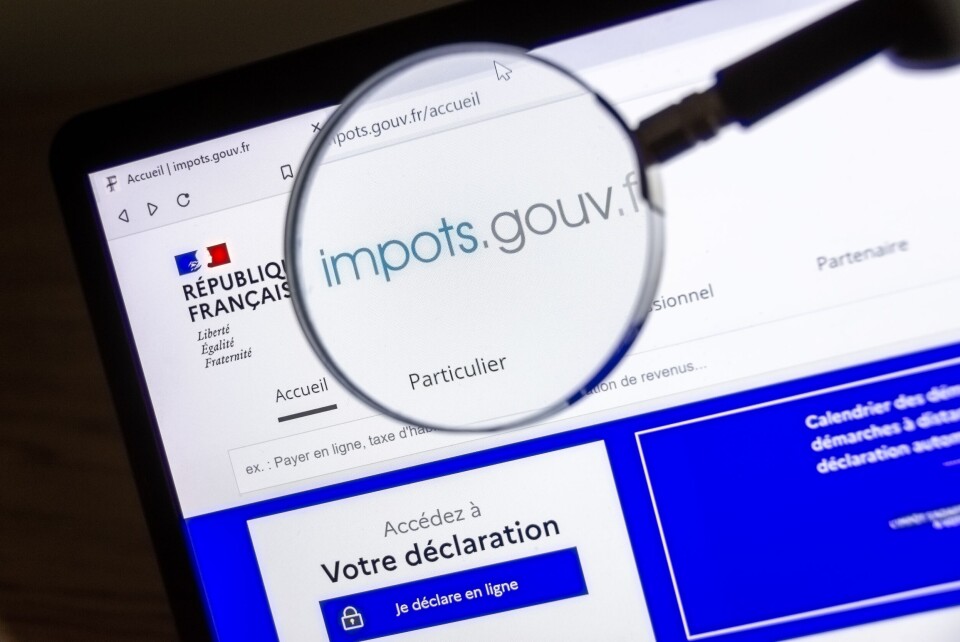-
France’s ‘solidarité fiscale’: when you are responsible for your partner’s tax
Couples who are married or in a civil partnership are jointly liable for certain taxes.
-
I have received a second-home tax bill for my main home in France - what should I do?
Ensure the tax office has the correct personal details
-
Your neighbour can legally check (part of) your tax assessment in France
There are strict conditions that must be met, however
Income tax reimbursements start in France tomorrow: are you eligible?
Each year, several million people receive repayments from the tax authorities on July 21 and August 2

[Article updated July 20 at 15:50 to further explain taxation at source.]
Taxpayers in France who are eligible for reductions or credits related to their income tax for 2021 - or who had too much deducted at source as their circumstances changed, should begin to be reimbursed from tomorrow (Thursday, July 21).
Each year, several million people receive these repayments from the tax authorities in summer. This year the dates for this are July 21 and August 2.
In France, tax reductions can be given, for example, in relation to eligible charitable donations made in that tax year.
Tax credits are granted to help people afford costs such as childcare in a nursery or creche.
You can find out more about tax reductions and credits on the government’s Service-public.fr website.
Someone may also have paid too much tax at source if the total amount taken off their salary over the course of the year is greater than the sum due. Income tax is normally taken off wages each month or quarter, but this does not take into account potential credits, reductions or a potential change in situation, so the difference is regulated at a later date (tomorrow).
This might happen if you have forgotten to report a change job in your online tax space or, for example, if you have not told the tax office about the birth of a child, which changes the composition of your tax household.
Tax reductions and credits are normally paid in two instalments
Tax reductions and credits are normally paid in two instalments: 60% in January and the rest in the summer if the expenses are shown to continue once income for the year in question is declared in spring and thus known.
This relates to certain expenses deemed to be ‘recurrent’, such as tax credits for home help or childcare or union membership, and reductions for dependency expenses in a retirement home, gifts to good causes or for investing in buy-to-let property.
The system in which tax credits are received retrospectively is progressively being replaced by an automatic payment, which enables people to benefit from when the expense occurs.
People who are eligible for reimbursement need not do anything as the tax authorities should be aware of the payment needing to be made.
If you are eligible and the authorities have your account details, you will receive the reimbursement by bank transfer. The payment will come with the reference ‘REMB IMPOT REVENUS’ and will be sent by ‘DGFIP FINANCES PUBLIQUES’.
If the tax office does not have your bank details, you will be sent a cheque.
You may have to repay some money if you had fewer expenses in 2021 than in 2020. If the sum owed is less than €300, you will pay on September 26, and if it is more than €300, you will pay in four instalments: on September 27, October 27, November 25 and December 27.
From autumn 2022 (and by mid-December at the latest) it will be possible to reduce or cancel the next January tax payment via your personal space on the tax website under Gérer votre avance de réductions et de crédits d’impôt if this will help your cashflow.
Certain credits/reductions are not included in the system of partial payments at the start of the year, such as a reduction for investing in a small business. Those you claim in your declaration in 2022 with regard to 2021 expenses will be regularised this summer. Formerly included under this were the CITE tax credits for eco-friendly home improvements (abolished as of 2021, with people invited to apply for an eco-grant instead).
Any ‘tax credit’ (as opposed to ‘reduction’) owed to you which cannot be regularised by lowering your tax liability will be paid by the tax office directly to your bank account.
Related articles
Can I get French income tax reductions on donations to UK charities?
Property renovation: new 0% loan to top-up French ‘MaPrimeRénov’ grant
Is our income from selling home solar panel power taxable in France?
























